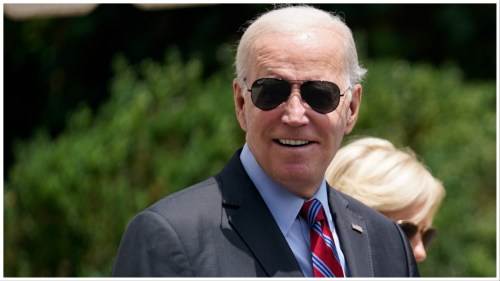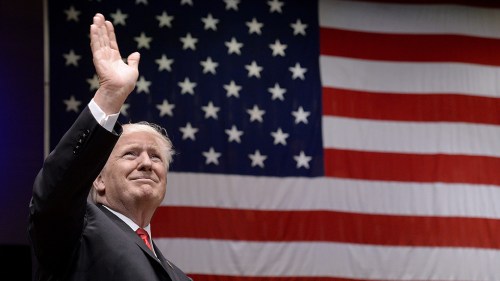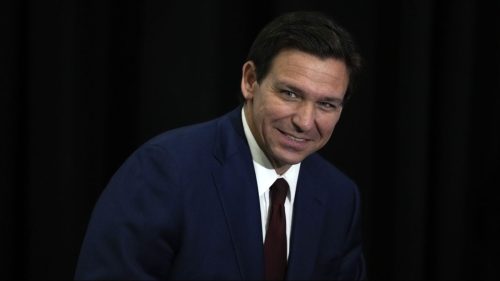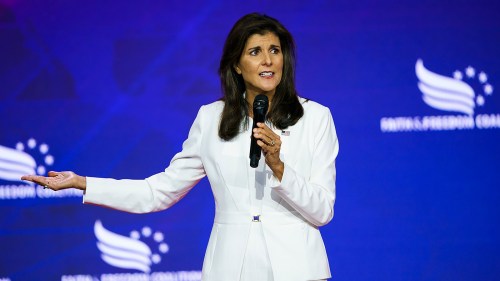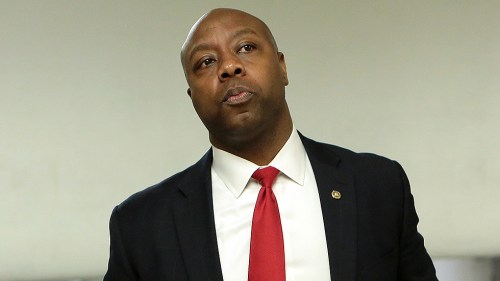Time running out for GOP’s Trump alternatives
Time is running out for Republicans searching for an alternative to former President Trump to coalesce around a single candidate as the Iowa caucuses rapidly approach.
The departure of former Vice President Mike Pence was the latest shake-up to the primary and could up the pressure on other low-polling candidates to drop out as well, especially as former UN Ambassador Nikki Haley gains traction and Florida Gov. Ron DeSantis’s (R) popularity shows signs of slipping.
But a new Iowa poll of the GOP field also highlights the challenges Republicans face if they want to beat Trump, who continues to dominate the race.
The NBC News/Des Moines Register/Mediacom poll released on Monday showed Trump with a 27-point lead over his next closest competitor in the Hawkeye State, which will be the first to vote in the Republican nominating process. That’s an increase from the 23-point lead he had in August. Haley and DeSantis were tied for second at 16 percent, with the former U.N. ambassador gaining 10 points since the same poll in August and the Florida governor slipping 3 points.
The results come as the non-Trump candidates continue to jostle to become the main alternative to the former president, who has built up a substantial lead in key states and nationwide.
“If you are one of the undercard candidates, the sooner you can go head-to-head with Trump, the better your chances are,” said Iowa-based Republican consultant Nicole Schlinger.
Candidates have been dropping out throughout the month of October, but they have mostly been minor candidates. Former Rep. Will Hurd (R-Texas), former Montana Secretary of State Corey Stapleton, businessman Perry Johnson and former radio host Larry Elder all quit the race within a couple weeks of each other.
But Pence is the most major candidate to drop out yet, having served as vice president for Trump and a close ally before the former president’s attempts to overturn the results of the 2020 election and the Jan. 6, 2021, insurrection.
Pence tried to emphasize his conservative and religious values as the continuation of the Trump administration’s policies, while walking a careful line on how to handle the former president. But he struggled to catch on in the polls and especially in fundraising in a race where Trump is taking up so much of the oxygen.
“Mike Pence would have done great 25 years ago, but that’s not where our party is today,” Schlinger said. “Sometimes you need to read the room.”
Pence had appeared to have met the polling requirements to make the stage for the third GOP debate next week, but he seemed likely to fall short of the fundraising requirement of having at least 70,000 unique donors.
Still, he was receiving no higher than mid-single digits nationally and in Iowa, a state with a strong evangelical base that in theory should have been a major opportunity for his campaign.
Schlinger argued that Pence’s failure to gain traction, even in Iowa, demonstrated that evangelical voters are considering a “broad number of factors” in choosing their candidate.
Only 2 percent of respondents in the Iowa poll, which was taken before Pence suspended his campaign, listed him as their first choice.
Michael Strain, a scholar in political economy at the conservative-leaning think tank American Enterprise Institute, argued in a National Review opinion piece on Monday that all candidates except Haley should follow Pence’s lead.
DeSantis has still consistently placed in second nationally and in key states, though multiple recent polls have shown Haley at least within the margin of error behind DeSantis.
Republican strategist Saul Anuzis, a former Michigan Republican Party chair, said Haley and DeSantis appear to be in the strongest positions to make the argument that they should be the main alternative to Trump.
But he warned that polls at this point of the race are still only showing “movement” rather than the strength of fundraising or political infrastructure, which will determine who is ultimately the strongest.
“The reality is it’s just a little early to tell,” he said.
Anuzis said he does not expect a major shift in the polls because of Pence dropping out, but his and others’ decision to drop out adds at least some pressure on the remaining candidates to make a decision about their future in the race “at some stage of the game.”
“It does put some pressure on. It starts the cascade of candidates slowly pulling out, which I believe is going to happen between now and in Iowa anyways,” Anuzis said.
He said the most likely place for Trump to be defeated by that non-Trump alternative, if one can coalesce support, would be at the Republican convention, with delegates being unbound and allowed to vote for any candidate if delegates decide they do not want Trump.
He added that the rules of the convention will be set at the start of the convention, which will determine if an alternative is possible.
“I don’t think there’s going to be any knockout punches in the early primaries or any of the primaries. It’s really gonna be a function of getting to the convention and having the delegates,” Anuzis said.
But Republican strategist Rina Shah said the larger field is not necessarily a problem, at least at the start of the voting since people will have multiple options other than Trump. She said it’s uncertain when a clear single alternative would need to emerge.
Shah added that she believes Haley has the best argument to be the main alternative to Trump now because of her strong performances in the first two GOP debates. She said Haley would benefit from former New Jersey Gov. Chris Christie and Sen. Tim Scott (R-S.C.) dropping out and throwing their support behind her.
“There is a sense that perhaps a candidate in the primary who is able to show their ability to play the long game like Nikki Haley has might be somebody to start to get behind,” she said.
Scott has also been struggling to gain much traction in the polls and told conservative radio host Hugh Hewitt on Monday that his campaign is “Iowa or bust.” Christie has seemed to be taking a similar approach to New Hampshire.
Shah argued many in the Republican electorate voted for Trump in 2020 “with their noses pinched,” whereas they now have choices.
Trump faced only negligible opposition for the nomination in 2020 from candidates like former Massachusetts Gov. Bill Weld, former Rep. Joe Walsh (R-Ill.) and former South Carolina Gov. Mark Sanford.
“But now you’ve got this larger primary field, and we don’t know how that’s gonna play out,” Shah said.
Copyright 2023 Nexstar Media Inc. All rights reserved. This material may not be published, broadcast, rewritten, or redistributed. Regular the hill posts
